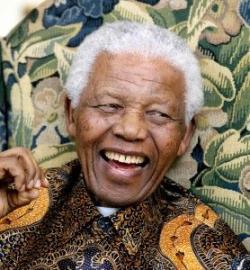
Published date
5 December 2013
The 5th of December marks the anniversary of the death of revolutionary anti-Apartheid liberation leader, Nelson Rolihlahla Mandela, whose vision and respect for human dignity brought hope to a country previously ravaged by injustice and discrimination. Born on 18 July 1918, Nelson Rolihlahla Mandela is hailed as the greatest icon of South Africa’s liberation struggle. Imprisoned in 1964 for his role in the African National Congress’ (ANC) struggle against the Apartheid regime, Mandela was charged and convicted of sabotage and treason and received a life sentence on Robben Island. This, however, did not deter the man who had spent the better part of his life battling the injustices of racial segregation and oppression. In 1984 while still imprisoned, Mandela rejected the then-president PW Botha’s offer of conditional freedom, insisting that Apartheid be completely dismantled and legitimate political activities be allowed by the state. This action spurred further protests and appeals for Mandela’s release throughout South Africa as well as the international community. During his imprisonment, Mandela was the recipient of several international awards such as India’s Jawaharlal Nehru Award for International Understanding, a lifetime membership to the University of London, and the Australian Human Rights Award. After his release in 1990, Mandela received the Nobel Peace Prize, and was elected President in 1994 in South Africa’s first free, democratic elections. Part of his legacy lives on in the form of Mandela Day (18 July) and its 67 Minutes for Mandela; during which people in South Africa and across the world devote one minute of their time and the fight for social justice, transformation and democracy.
References
South African History Online, Nelson Mandela, from SAHO,[Online], Available at www.sahistory.org.za, [accessed; 3 December 2014]